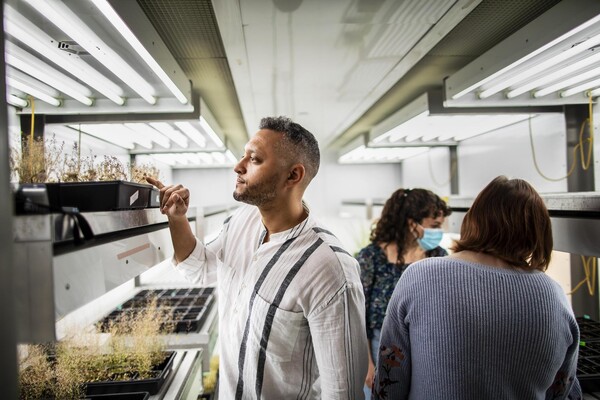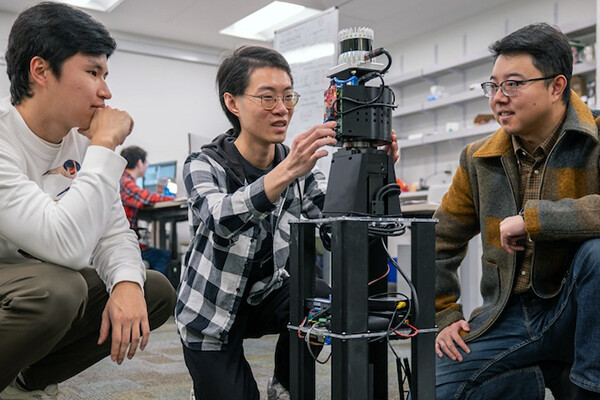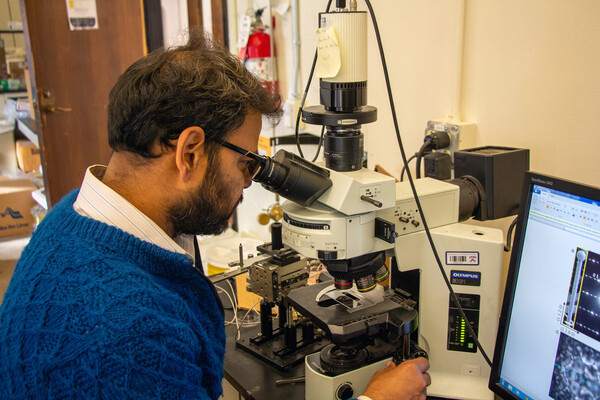11/15
Science & Technology
Penn Bioengineers Develop a Microfabricated Device to Measure Cellular Forces During Tissue Development
PHILADELPHIA –- A University of Pennsylvania-led collaboration of bioengineers studying the physical forces generated by individual cells has created a tiny micron–sized device that allows researchers to measure and manipulate cellular forces as assemblies of living cells reorganize themselves into tissues.
Social Moms Make Better Moms, at Least in Baboons, According to Penn and UCLA Study
PHILADELPHIA –- Female baboons who have strong social relationships with other females give birth to offspring who are much more likely to survive to adulthood than baboons reared by less social mothers, according to a new study by researchers at the University of Pennsylvania, the University of California, Los Angeles, and others.
The New York City Premiere of the Documentary BLAST!, featuring Penn's Balloon-Borne, High-Altitude Telescope
WHAT: The 2008 documentary film BLAST! follows a team of scientists, led by Mark Devlin, professor of astronomy and astrophysics, in their attempts to figure out how galaxies form by launching a revolutionary new telescope on a NASA high-altitude balloon.
I'll Be Your Best Friend If You'll Be Mine: Penn Psychologists Look at the Alliance Hypothesis for Human Friendship
PHILADELPHIA –- University of Pennsylvania psychologists studying the cognitive mechanisms behind human friendship have determined that how you rank your best friends is closely related to how you think your friends rank you.
Arjun G. Yodh Named Director of Penn's Laboratory for Research on the Structure of Matter
PHILADELPHIA –- Arjun G. Yodh, a researcher studying condensed matter physics, medical and biophysics and optics has been named director of the Laboratory for Research on the Structure of Matter at the University of Pennsylvania.
In the News
Climate policy under a second Trump presidency
Michael Mann of the School of Arts & Sciences discusses how much a president can do or undo when it comes to environmental policy.
FULL STORY →
Exxon CEO wants Trump to stay in Paris climate accord
Michael Mann of the School of Arts & Sciences voices his concern about the possibility that the U.S. could become a petrostate.
FULL STORY →
Superhuman vision lets robots see through walls, smoke with new LiDAR-like eyes
Mingmin Zhao of the School of Engineering and Applied Science and colleagues are using radio signals to allow robots to “see” beyond traditional sensor limits.
FULL STORY →
A sneak peek inside Penn Engineering’s new $137.5M mass timber building
Amy Gutmann Hall aims to be Philadelphia’s next big hub for AI and innovation while setting a new standard for architectural sustainability.
FULL STORY →
Amid Earth’s heat records, scientists report another bump upward in annual carbon emissions
Michael Mann of the School of Arts & Sciences says that total carbon emissions including fossil fuel pollution and land use changes such as deforestation are basically flat because land emissions are declining.
FULL STORY →
How can we remove carbon from the air? Here are a few ideas
Jennifer Wilcox of the School of Engineering and Applied Science and Kleinman Center for Energy Policy at the Weitzman School of Design says that the carbon-removal potential of forestation can’t always be reliably measured in terms of how much removal and for how long.
FULL STORY →
California air regulators approve changes to climate program that could raise gas prices
Danny Cullenward of the Kleinman Center for Energy Policy at the Weitzman School of Design says that many things being credited in California’s new climate program don’t help the climate.
FULL STORY →
Self shocks turn crystal to glass at ultralow power density: Study
A collaborative study by researchers from the School of Engineering and Applied Science has shed new light on amorphization, the transition from a crystalline to a glassy state at the nanoscale.
FULL STORY →
Climate scientists fear Trump will destroy progress in his second term – and the outcome could be ‘grim’
Michael Mann of the School of Arts & Sciences says that a second Trump term and the implementation of Project 2025 represents the end of climate action in this decade.
FULL STORY →
U.S. achieves billion-fold power-saving semiconductor tech; could challenge China
A collaborative effort by Ritesh Agarwal of the School of Engineering and Applied Science and colleagues has made phase-change memory more energy efficient and could unlock a future revolution in data storage.
FULL STORY →






